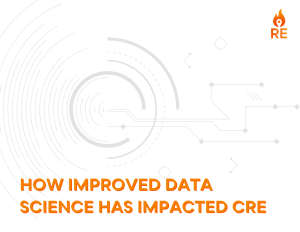Feature
When did the term “Proptech” start?
Just a few years ago, you didn’t hear much about Proptech. At least it wasn’t a common term.
Not surprisingly, the term Proptech evolved much like Fintech (financial technology), Martech (marketing technology), Contech (construction technology), Edtech (educational technology), and so many others. What is Proptech? It’s simply a combination of “property” and “technology” and carries differing definitions throughout the real estate industry.
These types of abbreviations are called neologisms. By using neologisms, writers, investors, and industry enthusiasts can more quickly define, analyze, and compare companies that are developing new technology, concepts, and ideas in existing industries.
Of course, the technology industry in general has seen an enormous boom period over the last decade. As more companies tout themselves as “disruptors” and get billion-dollar valuations, startups have branched out of financial and internet-focused sectors to industries and niches that serve more traditional B2C and B2B customers.
The Proptech industry is a good example. In fact, according to Deloitte, Proptech startups have already raised over $43 billion in funding worldwide since 2012. In 2018 alone there was an 82% increase from the year before.
So how did we get so far so fast?
The Story of Proptech
While it’s a relatively new term, we can trace the Proptech definition way back to ancient times. You know, the Microsoft era – 1980 to 2000.
Following the introduction of personal computing, organizations in the real estate sector found they needed more advanced property technology to be able to accurately assess investment and portfolio management. As a result, software companies stepped up to fill the need for more effective tools to perform time-consuming real estate functions such as underwriting, accounting, and analytics. Unlike large-scale sophisticated software solutions prevalent today, these earlier tech products didn’t integrate with each other.
More work was needed.
After the dot com boom from 2001 to 2007, accessing real estate information or purchasing or renting a home entirely online was still fairly difficult. But people were feeling increasingly more confident about online transactions in general, which spilled over to the real estate industry. Sites such as Zillow and Trulia targeting the residential real estate market emerged as standard platforms for searching, buying, and renting homes. They provided a Proptech solution that propelled them to become industry leaders, and they still hold that status today.
Fast forward to the years between 2008 to today, and you’ll see some of the results of significant advancements in data processing and storage – not to mention billions of dollars in funding of real estate tech companies subscribing to this business model. Consumer preferences have shifted from “ownership” to “access,” ushering in the sharing economy Proptech trend and (now) mainstream real estate companies like WeWork and Airbnb.
Catch up on the latest from RefineRE:
- The Impact of Improved Data Science on the Commercial Real Estate Industry
- How Market Data Drives Value in CRE
- Webinar on Demand: Back to Anywhere
What is Proptech to CRE occupiers?
Today’s Proptech is essential for corporate occupiers, providing smarter, better, faster answers to the real estate challenges and pain points most often faced right now. And more and more corporate real estate teams are committed to investing in the technology that will keep them competitive – both today and tomorrow.
According to John D’Angelo, Deloitte Consulting’s US Real Estate Leader, the COVID-19 pandemic is speeding up commercial real estate’s use of technology. Real estate corporations worldwide are also researching to understand the following:
- Evolving behavioral trends
- How to establish secure building spaces
- Ways to increase efficiency
- How to recognize challenges and vulnerabilities at the asset and portfolio level
As a Proptech company, RefineRE remains dedicated to providing corporate occupiers the advanced tools, new technology, and customer-centric services needed to reduce costs, gain insights, eliminate bias, and get necessary context for better real estate business decisions.
Contact us for more information about how RefineRE can help power your real estate, workplace, and facilities strategies.
Catch up on the latest from RefineRE:
- The Impact of Improved Data Science on the Commercial Real Estate Industry
- How Market Data Drives Value in CRE
- Webinar on Demand: Back to Anywhere
Schedule a consultation with RefineRE
Here's what you can expect:
- ‣ A 15-minute call
- ‣ Identify your biggest challenges
- ‣ Explore automated solutions to optimize your strategy





